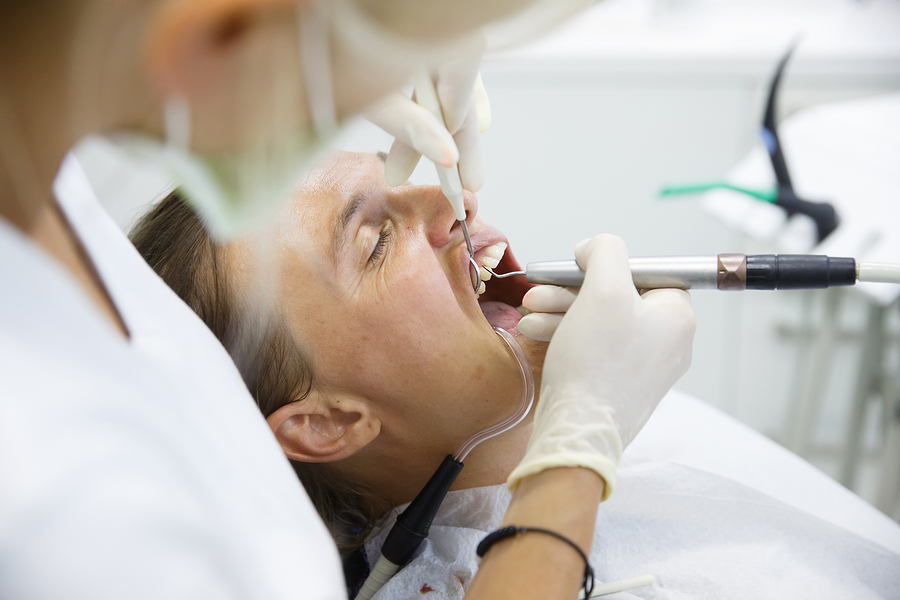 Most people thinking about the health of their mouth will first worry about their teeth, and what may happen with a visit to the dentist. But there’s another part of your mouth that’s just as important, and that’s your gums. Your gums are the “anchor” that help to hold your teeth in place, and, despite being softer than teeth, also act as a bacterial shield to protect both your teeth and the bones of your jaws from infection.
Most people thinking about the health of their mouth will first worry about their teeth, and what may happen with a visit to the dentist. But there’s another part of your mouth that’s just as important, and that’s your gums. Your gums are the “anchor” that help to hold your teeth in place, and, despite being softer than teeth, also act as a bacterial shield to protect both your teeth and the bones of your jaws from infection.
But, just like teeth, gums can also come down with a sickness, although in this case, it’s not cavities. When you get a gum disease, this isn’t as straightforward as a cavity and does not necessarily require a periodontist in Long Island, though that is the person most qualified to treat such infections. But if you do get gum disease what do you do next?
The Check Up
If you find that you are brushing your teeth as you normally would, and are in all other ways exercising your normal amount of oral care, but suddenly bleed regularly, this is a sign. If you experience soreness in your mouth, this is also another sign.
You should get yourself checked by your dentist, or a periodontist in Long Island just to make sure. If you’re experiencing these symptoms, you probably have a gum infection of some sort. It’s always best to get an expert opinion first rather than self-diagnose.
The Severity
In the less serious cases of bleeding or sore gums, the gum disease you have may be gingivitis. This is the more common, less threatening infection that can happen to many people, even if they brush their teeth regularly. For example, pregnancy and diabetes can increase the chances of gingivitis. However, the most common cause for it is usually food getting trapped somewhere in a space called the “sulcus” which is between the gum and tooth.
If you get gingivitis, the best course of treatment is simply good oral care on your part. More attentive brushing, the use of floss if this is not a regular habit or even a water flosser can all help to clear out the space and keep it clean. If you smoke, this can accelerate an infection, so consider quitting, or at least stopping for a while.
More serious cases, such as periodontitis, can arise from neglected gingivitis, or even the blockage of blood to the gums. Periodontitis eventually leads to gums receding, infections getting more serious and painful, and the loss of teeth as they are unable to maintain anchorage to the mouth.
In this case, there’s no easy homecare solution, you need to get yourself properly diagnosed and treated by a periodontist in Long Island for professional care. This may involve fighting the infection itself and being able to save the teeth, using techniques like root planing and scaling, or may require dental implants or other solutions if the infection is more severe.
Of course, prevention is really the best medicine of all, and a regimen of regular brushing and flossing will keep gum disease at bay.




